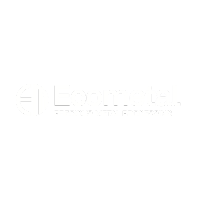Frequently Asked Questions
Your questions on the precious metal industry in Switzerland.
Importation of gold into Switzerland (Tariff item No. 7108.12)
Statistical sources: Swiss customs
| Timeframe 1,2,3,4 | Import | Export | ||||
| Quantity (tonnes) | Value (CHF) | Value+/- % | Quantity (tonnes) | Value (CHF) | Value +/- % | |
| 2015 | 51 959 089 | 243 771 931 917 | -3,5 | 18 357 479 | 279 154 845 287 | -2,1 |
| 2016 | 52 314 633 | 266 137 159 877 | 9,2 | 18 199 839 | 298 408 001 181 | 6,9 |
| 2017 | 52 324 090 | 265 571 542 294 | -0,2 | 20 365 770 | 294 893 856 892 | -1,2 |
| 2018 | 50 729 230 | 273 389 090 124 | 2,9 | 20 288 277 | 303 885 759 540 | 3 |
| 2019 | 50 822 087 | 276 058 116 020 | 1 | 20 034 377 | 311 976 706 436 | 2,7 |
| 2020*** | 47 821 570 | 273 282 389 608 | -1 | 18 287 322 | 299 382 958 879 | -4 |
Legend
* Rate of change/share/price not interpretable or not calculable
** Rate of change > 999.9
*** Provisional data
1 Since 2002: including electricity, returned goods and processing traffic
2 Since 2012 (imports): country of origin instead of country of production
3 Since 2012: including gold and silver bars and coins for grand total (total 2)
4 Since 2013: new calculation method for electricity flows
The answer is resolutely yes. If the ASFCMP discovers failures to implement this precautionary principle and ensure compliance within a reasonable period of time, it reserves the right to implement sanctions.
For the ASFCMP, supply chain traceability is a key factor in the compliance system of its members.
This is a simple precautionary measure. The same applies to the credibility of the Swiss gold industry, and the ASFCMP is committed to this.
Dubious gold has no place in Switzerland. Pending the implementation of larger-scale solutions, it is our duty to remove any doubts over gold imported into Switzerland.
The majority of Swiss refiners have greatly scaled back or even suspended their gold imports from Dubai in recent years. They have taken care to restrict themselves to reliable sources, the origin of which can be traced.
So the Swiss industry has a good awareness of this issue, although there is still some progress to be made, as the current debate shows.
Hence it is essential to continue efforts, in order to eliminate any remaining doubts over gold imported into Switzerland, in particular concerning batches from Dubai.
It is incorrect to say that Switzerland is the world’s gold hub – and if we take gold of doubtful origin into account, this statement is even less true.
Out of the 2’404 tonnes of gold imported into Switzerland in 2017, and the 2’250 tonnes in 2018 and 2’100 tonnes in 2019 respectively, the majority of this volume was not mined gold, but imports of gold ingots that had already been refined or banking products (in the form of standard bars, ingots, pellets) from banks who requested that they be stored in Switzerland or from LBMA members. There is also industrial waste and other recycled products.
Gold from banking products constitutes around 1200 tonnes per year, since Switzerland processes 80% of the gold LBMA.
In reality, only 14% (or 490 tonnes on average per year) of global mined gold is refined in Switzerland according to the LBMA’s statistics, this clearly indicates that Switzerland is not the world’s gold hub, as is often incorrectly assumed.
It is also an extremely competitive field: There are 70 refiners worldwide, versus just four in Switzerland.
The majority of Swiss refiners have taken care to restrict themselves to reliable sources, the origin of which can be traced.
| Switzerland refines 70% of the world’s gold. | |
| According to LBMA, in 2017, 15% of global mined gold production was refined in Switzerland. | |
| Information on countries of origin is not collected. | |
| This information is always known and is sent to the regulator, the LBMA, who consolidates and publishes this information. | |
| The refiners do not visit mining sites. | |
| Refiners carry out regular visits to the area to evaluate risks. These visits are mandatory in the context of higher risk supply chains. | |
| The majority of mines operate illegally. | |
| Several studies maintain that 80 to 90% of global gold production comes from mines where activity is authorised and controlled. | |
| Swiss refineries are not subject to as many regulations as foreign refiners. | |
| LBMA refineries already apply the requirements of the EU Conflict Minerals Regulation (due diligence according to OECD guidance). Swiss refineries are subject to the LBA, unlike other countries, to the Commodity Trading regulations of the State Secretariat for Economic Affairs (SECO) and the Federal Department of Foreign Affairs (FDFA) and to the Precious Metals Control Act (PMCA), which is the strictest in the world. |














